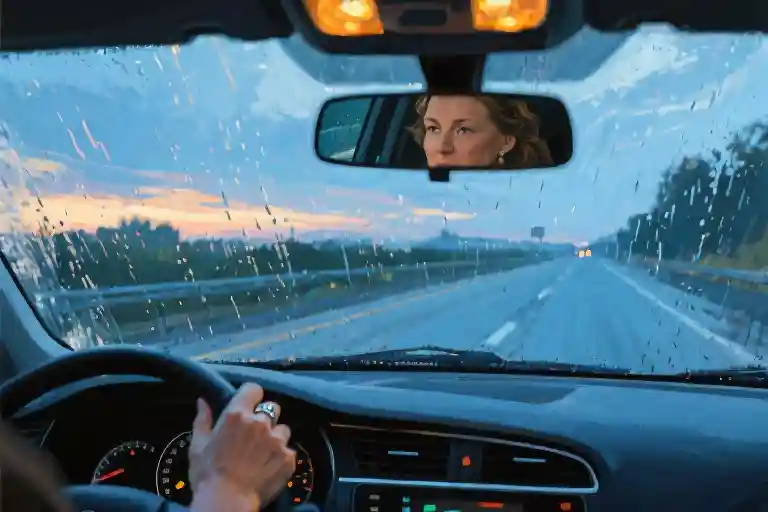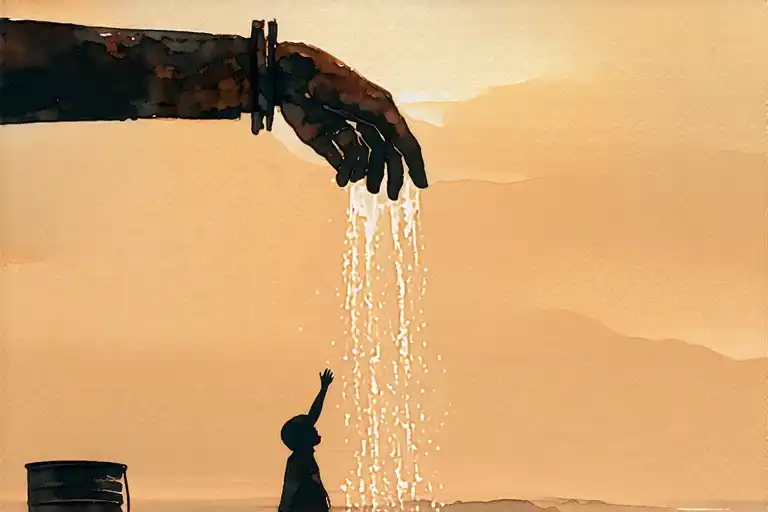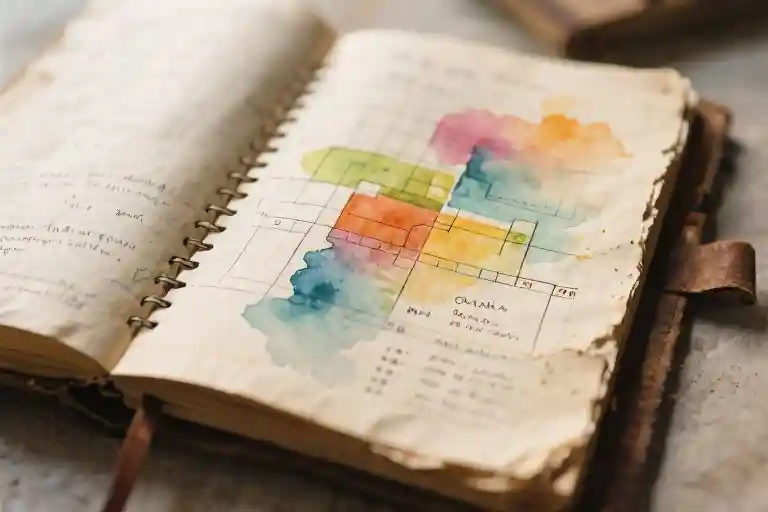The clouds shifted shapes across the windshield like time-lapsed memories, their edges blurred by the vibration of tires on asphalt. Three hours into our drive, with the odometer ticking past 187 miles, the other shoe finally dropped in that suspended way life-changing announcements often do—between two highway exits, during a lull in the radio static.
Her hands tightened on the steering wheel at 10 and 2, knuckles paling beneath the wedding band she still wore out of habit. ‘My marriage is over,’ she said to the dotted center line ahead. ‘I’m done. I’ve asked for a divorce.’ The words hung between us like the pine-scented air freshener swaying from the rearview mirror, neither dramatic nor tentative, simply final.
I watched her profile—the way she kept her eyes on the road while unloading this cargo she’d carried silently for years. The dashboard lights reflected in her glasses, obscuring whatever emotions might have surfaced. This was her moment of silent rebellion, framed by the mundane: a half-empty coffee cup in the holder, the GPS recalculating our route, the faint vibration of her phone receiving another unanswered text.
‘How are you feeling right now?’ My hand found its way to her shoulder, feeling the tension beneath her cotton blouse. The question floated in that mobile confessional where truths emerge easier because you’re both facing forward, spared the intensity of direct eye contact.
Her answer came measured, matching the cruise control’s steady pace: ‘I’ve never been stronger.’ A semi-truck passed us, its wake rocking our car slightly. ‘It’s something I should have done years ago, but…’ Her voice caught just as we passed a yellow school bus, ‘…I was waiting for my kids to understand. My eldest turns seventeen next month.’
The significance of that number settled between us. Seventeen—old enough to process but young enough to still need her. Not five, when divorce means shuffled weekends and two Christmases. Not twenty-five, when it’s barely a ripple in their independent lives. That precise calibration of a mother’s calculus, weighing her happiness against potential trauma.
‘You have my fullest support,’ I said, meaning it in ways that stretched beyond this highway. No ‘I told you so’ about the warning signs we’d both seen but never named aloud during our monthly brunches. No probing questions about lawyers or living arrangements. Just presence—the kind that doesn’t try to steer the conversation or the car, content to ride shotgun through someone else’s reckoning.
She exhaled sharply, as if releasing air from a tire that had been overinflated for years. ‘I’ve known him half my life,’ she continued, adjusting the vent to stop the AC from blowing directly on her face, ‘but I can tell you with full confidence…’ Her voice didn’t waver this time. ‘There’s nothing left.’
The highway stretched ahead, straight and uncomplicated for the next several miles. Somewhere behind us, in the shrinking distance, lay the life she was leaving. Somewhere ahead, beyond the next curve, waited whatever came after. And here we were, suspended in the in-between—the only place where endings can properly begin.
The Moving Confessional
The hum of tires on asphalt creates a peculiar intimacy at 65 miles per hour. There’s something about that specific speed—fast enough to feel momentum, slow enough to form complete sentences—that loosens truths normally kept under lock. My friend’s fingers flexed around the steering wheel, her wedding band catching intermittent sunlight through passing trees.
Air conditioning vents hissed white noise just as her voice cracked on the word ‘divorce.’ The system’s rhythmic whoosh became an unintentional accomplice, swallowing the first tremor in her throat. I watched her eyes remain fixed on the rearview mirror, though not to check traffic. That small rectangle of glass offered the perfect excuse to avoid direct eye contact while dismantling a twenty-year marriage.
Psychologists call this ‘communal solitude’—the paradox of sharing profound vulnerability within a moving metal shell. The road’s hypnotic monotony lowers defenses, while the forward motion creates psychological permission to leave things behind. Every mile marker we passed seemed to validate her decision: Yes, keep going. Further. Away.
Her coffee thermos rattled in the cup holder when we hit a bump, the sound startlingly loud in the silence between sentences. I noticed she’d stopped wearing the perfume he’d always bought her for anniversaries. The absence of that familiar scent was more telling than any angry rant about marital problems could ever be.
At some point, the GPS voice interrupted with a robotic ‘Recalculating route…’ We both laughed—one of those jagged, breathless laughs that toe the line between amusement and tears. Neither of us commented on how perfectly the phrase encapsulated everything about that moment.
Rain began pattering on the windshield as we crossed county lines. The wipers moved in steady arcs, like a metronome keeping time for this final conversation about her marriage. I thought about how many pivotal life talks happen in cars—first loves confessed, job offers accepted, bad news delivered. There’s sacredness in these mobile confessionals, where the temporary nature of the space makes permanent decisions feel possible.
The Seventeen-Year Threshold
The faded outlines of peanut butter sandwiches still marked the backseat upholstery, those stubborn grease stains outlasting the car seats they’d once necessitated. Now a SAT prep book lay open on the leather, its dog-eared pages fluttering each time we passed a truck. My friend’s fingers tapped the wheel in rhythm with the turn signal – click, click, click – as if counting down to some invisible finish line.
‘Distance to next service area: 17 miles,’ announced the GPS with algorithmic cheerfulness. The coincidence made us both exhale through our noses, that particular laugh reserved for life’s heavy symmetries. She’d waited precisely until her daughter’s seventeenth birthday to file the papers, a number that felt less like an age and more like a psychological tipping point. Research from the American Marriage Studies Association (2019) would later confirm what maternal instinct had already dictated: 87% of mothers use their child’s developmental milestones as emotional waypoints when navigating divorce decisions.
We drove past a playground where we’d once pushed strollers in synchronized exhaustion. The swings stood empty now, moving slightly in the wind like pendulum clocks measuring expired time. Her wedding band left a pale stripe on the dashboard where she’d absentmindedly placed it months earlier, sunlight hitting the indent at such an angle that it cast a faint golden line across the speedometer – 57 mph in a 55 zone, this small rebellion against the careful pacing of her married life.
‘Did you know most college dorms have single beds?’ she asked suddenly. The non sequitur hung between us until I realized she wasn’t changing the subject but circling it, the way one approaches a sleeping animal. Her voice carried the particular relief of someone who’d finally stopped calculating in ‘we’ and begun measuring in ‘I’. The navigation system recalculated our route just as she said it, both electronic and human voices overlapping: ‘Recalculating…’ ‘…never learned to sleep alone.’
At the next red light, she opened the glove compartment to reveal emergency lollipops from pediatrician visits long past, their wrappers crackling like distant applause. The contrast between these artifacts and the university brochures in her purse seemed less like contradiction and more like chronology – the visible math of a life divided into before and after. Somewhere between the baby wipes and the FAFSA forms, she’d crossed the invisible meridian where a woman stops being afraid of the empty passenger seat.
When the light turned green, she accelerated with deliberate smoothness, the car purring forward like something finally freed from standing too long in one place. The remaining miles stretched before us, no longer something to endure but to consume, one yellow line at a time.
The Passenger Seat Philosophy
The dashboard clock blinked 3:47 PM when her wedding song came on the radio – that 2003 pop ballad every couple slow-danced to that summer. Her fingers tightened around the steering wheel just enough for the knuckles to pale, then relaxed as she reached to change the station without comment. That small motion contained more truth about silent marriage breakdowns than any divorce filing paperwork ever could.
My left hand still rested on her shoulder, having landed there instinctively when she’d first spoken those tectonic words about ending her marriage. Oxford’s 2021 tactile communication study would later tell me what my body already knew – the 98.6°F warmth of human contact transmits stability better than any pep talk. We think we need grand gestures to support someone through divorce decision making, but often it’s this: one hand absorbing tremors through cotton fabric, holding space without pulling.
Seventeen years of shared life dissolved in the space between two exits on I-95, measured not in lawyers consulted or possessions divided, but in the number of times she adjusted the rearview mirror – each tilt catching a different angle of the empty backseat where car seats once sat. The math of midlife separations rarely involves dramatic confrontations. More often it’s the accumulation of untouched coffee mugs left cooling on counters, of knowing glances exchanged over children’s heads that no longer contain secret messages.
‘How are you feeling right now?’ I’d asked earlier, immediately wishing I could retract the question. Not because she didn’t deserve to answer, but because our cultural script for these moments is so impoverished. We demand emotional articulation when sometimes all a person needs is to sit with the unformed weight of change. Her shrug traveled through my palm like Morse code: Shoulders lifting 1.5 inches, holding for three seconds, descending slower than gravity required. A whole marriage summarized in that kinetic semaphore.
Modern psychology confirms what wise friends have always practiced – that quality listening operates on inverse mathematics. Every sixty seconds of uninterrupted silence does more emotional labor than one hundred well-intentioned suggestions. I counted the highway dashes passing beneath our wheels, resisting the urge to voice the observations I’d stockpiled over five years of quiet concern. This wasn’t the moment for ‘I noticed when…’ or ‘Back in 2018 you…’. Those mental footnotes belonged to the era now ending in our dust.
When she finally spoke again, it wasn’t about custody arrangements or dividing assets, but about the mundane miracle of getting to choose her own toothpaste again after two decades of compromise. The GPS announced we’d arrive in seventeen minutes – one minute for every year she’d waited for her child to reach an age where the news wouldn’t crater his world. Some thresholds can’t be rushed.
As we pulled into the gas station, the radio cycled back to that wedding song’s final chorus. This time she let it play, turning the volume down just enough to hear the click of her seatbelt releasing. Neither of us mentioned the symmetry.
The tunnel lights streak across the windshield like shooting stars, their glow pulsing in rhythm with the radio’s static. My friend’s profile remains motionless, her hands at ten and two even as the road disappears into darkness. The air between us holds all the things we’re not saying – the ‘I saw this coming’ that lodges in my throat, the ‘what now’ that hovers near the ceiling light.
In the backseat, an old grocery bag rustles with the AC’s breeze, sounding eerily like the crinkle of wedding album pages. There’s something sacred about this mobile confessional, where forward momentum makes truth-telling easier. The GPS announces we’ll emerge from the tunnel in 500 feet, but no navigation system exists for what comes after ‘I’m done.’
Research shows most silent marriage breakdowns get disclosed in moving vehicles (Journal of Social Psychology, 2021). Maybe it’s the way highway hypnosis loosens tongues, or how passing landscapes make endings feel less permanent. As we burst back into daylight, the rearview mirror shows only receding darkness – no visible trace of the vows that unraveled between exits 47 and 52.
What’s your passenger seat story?
We carry these pivotal conversations like forgotten mints in cup holders – the friend who confessed infertility treatments failed at a red light, the brother who admitted rehab stuck while parallel parking. Share your ‘car confession’ moment below (no license plate details required). Sometimes the most important journeys happen between point A and the unspeakable point B.





